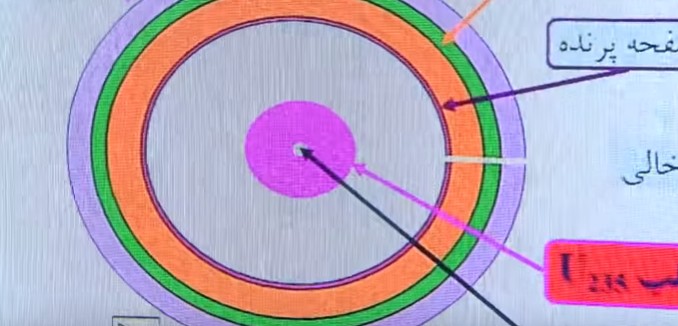The nuclear archive that stored by Iran for years contradicts assurances it made that “it would never pursue a nuclear weapon” and necessitates that the International Atomic Energy Agency (IAEA) “review and act upon” the materials in the archive, United States Ambassador Jackie Wolcott said on Tuesday.
Wolcott, the U.S. Ambassador to the Vienna Office of the United Nations and IAEA, was referring to the nuclear archive Israel seized last year from a nondescript warehouse in Tehran.
The ambassador held out the possibility that Iran could be reintegrated into the international community if it would be “willing to change its behavior, and to take lasting steps that demonstrate that its nuclear program will forever remain exclusively peaceful.”
“Iran’s retention of the archive not only underscores the key weakness of the temporary restrictions in the JCPOA [the nuclear deal],” Wolcott said, “but strikes at the heart of longstanding concerns that Iran continues to keep its nuclear options open.” She pointed out that demanding a full accounting of Iran’s nuclear weapons work isn’t to “score political points” but “to address critical verification issues with direct relevance to how we move forward.”
Toward that end, Wolcott called on the IAEA to “continue to review and act upon any information it determines to be credible and safeguards-relevant, including information that raises a safeguards-relevant question or inconsistency.”
The ambassador also demanded “full cooperation” by Iran with the IAEA and encouraged the IAEA “to request access to any location in Iran – civil or military – to verify Iran’s declarations under its Additional Protocol and Comprehensive Safeguards Agreement when a question or inconsistency has arisen.”
Wolcott’s call for the IAEA to take a more aggressive approach toward inspecting suspected Iranian nuclear weapons sites is consistent with recommendations made in a paper published jointly by the Institute for Science and International Security and the Foundation for Defense of Democracies (FDD) last month.
David Albright, a former weapons inspector and president of the institute; Olli Heinonen, former deputy director general of the International Atomic Energy Agency (IAEA) and a senior advisor to FDD; and Andrea Stricker, a senior policy analyst at the institute, noted in the paper that by maintaining such a comprehensive archive of its nuclear weapons activity, Iran likely violated its “pledge under the JCPOA that under no circumstances will it ever seek nuclear weapons.”
Albright, Heinonen, and Stricker wrote that the new information is “actionable,” allowing the world the possibility of “better carrying out inspections of Iran’s nuclear activities; challenging Iran’s prior incomplete and duplicitous statements about its nuclear weapons programs; more adequately understanding the threat Iran’s nuclear programs pose today and in the future; and better designing policies to address this issue.”
In the paper, the three authors expressed hope that the IAEA use this information to ensure “that all nuclear material and activities have indeed been declared to the IAEA, and all non-peaceful activities have been terminated and relevant capabilities dismantled.”
[Photo: IsraeliPM / YouTube ]




